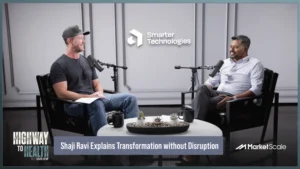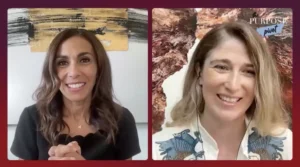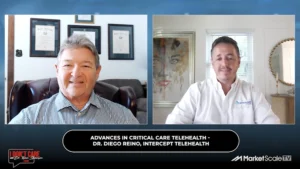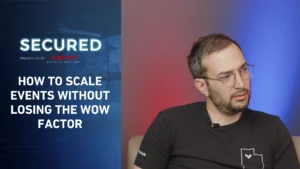Kraft Heinz Co. Exec Explains Why Kraft Decided to Sell Planters to Hormel
Watch as Carlos Abrams-Rivera, Kraft Heinz Co.’s U.S. zone president, discusses the company’s decision to sell its Planters snack brand to Hormel Foods Co. for $3.35 billion and says Kraft Heinz is in good shape to manage inflationary pressures. He speaks on “Bloomberg Markets: The Close.”
Transcript below
—
Host: It’s all about private label competition, how much are you reorientating, how much more could you sell off to take on to push away that sort of competition in terms of private label?
Abrams-Rivera: Well, first of all, let me just say that I’m very excited to be with you here today, and as you’d imagine, we have had a lot of exciting news and not only coming out of a very strong 20-20 close in the year very well, and also started the year very well. And I think some of the news that we share speaks to how we actually think can be more agile about our portfolio. So you’re right. I mean, part of our continued focus is to make sure that we remain with a portfolio that is less dependent on those competing with private label and something that we can actually have stronger brands play a bigger part of our future. And how we going to continue to do a transformation as we go forward.
Host: Is there a sense here, though, Carlos, that more has to be done with regards to shedding brands, or have you kind of reached a level that you’re comfortable with going forward?
Abrams-Rivera: Listen, I think that for us as a company, it’s about making sure we are being agile, how we think about the business. So, you know what? We talk about divestitures in the last couple of times that we have made announcements. You know, I’m also very much interested in on the acquisition part of it. So we’re going to continue to look at opportunities for us as we go forward to make sure we have the right portfolio that is focused on brand for the brand, the brands that we know consumer can trust, and also what we can find a little differentiation versus our peers and versus our competition. So, so more work to do here. But I also know that, you know, it’s not going to be a one and done is something that we’re going to continue to look for, and particularly in the case of acquisitions as well.
Host: Carlos, we’re having a raging debate about inflation expectations on the street. This past few weeks. Are you seeing higher input prices?
Abrams-Rivera: Well, so far, you know, if you think about the overall picture, you know, we have actually are in pretty good shape in terms of the inflationary pressures that we see in a one. I think that, you know, we situation that we feel that is manageable, the inflation that we are seeing across the border. And, you know, the reality is that those are things that we have to be able to manage between our focus and revenue management initiatives that we have in the company, as well as driving their efficiency across leveraging an entire scale. So I think that, well, they are somewhat inflationary, obviously, pressures that we see. Those are things that, as a company, we are able to actually manage fairly well between, again, the things we’re doing in terms of revenue management and the things we’re doing in terms of making sure that, you know, we are being smart about how we leverage our scale to drive even better efficiencies and talking about efficiencies as, of course, sustainability to be thinking about as well.
Host: And efficiency within and around your packaging. How is that being a focus of yours? Is that driving up costs in any way? Is that something that you will swallow or that you pass on to the consumer in some way?
Abrams-Rivera: We think the sustainability is a critical part of going forward. I think if you think about our innovation and innovation that we’re doing, know more than 50% of our portfolio, it’s really focused on us being greener, cleaner. And, you know, as we go forward, we’ll have to make sure we’re delicious in everything that we do. So clearly, being greener and cleaner is a critical part of how we think about our future. Just know that if you think about our own vision for going forward, sustainability is a word that we actually put in part of our vision. So we believe that that is something that we are going to be able to continue to leverage as we go forward at the same time. We also think those are benefits that consumers very much see as part of the overall value equation. So when we, for example, talk about having a Mac and cheese cup, that he has a fiber based, recyclable microwavable type of cup for the first time ever, that is a benefit that we know consumers care about. And it’s part of the role value equation as part of our benefits that it can bring Kraft and the brands that we have.
Host: Are you able to sort of pursue those things, Carlos, without either raising prices on the consumer too much or on the flip side, without your costs to create those new packagings and sustainability items going up as well?
Abrams-Rivera: That is a great question. But I would say is this is where I see the power of n, we need to deliver those benefits. And we need to do it in a way that creates a better value for everyone. I mean, the reality is that one of the things that we can bring that is unique versus our competition is the fact that we bring great benefits in a way that is accessible to everyone. So we need to make sure that we bring those kinds of benefits that are unique. We also do it in a way that is appropriate for all the consumers can actually access to. So we are very conscious of making sure that we leverage our scale to drive efficiencies that allow us to bring us those benefits in a way that, again, everyone can access to.
*Bloomberg contributed to this article
—
Follow us on social media for the latest updates in B2B!
Twitter – @MarketScale
Facebook – facebook.com/marketscale
LinkedIn – linkedin.com/company/marketscale








